By Ousman Mbowe
It is surprising, yet fascinating how a group of people who have crowned themselves as the custodians of the faith of Islam in this country—the Supreme Islamic Council (SIC)—could feel so threatened by the message and efforts of a group of people—the Ahmadiyya Muslim Jama’at—who they (the SIC) keep labelling as being false, and propagating false messages.
On Tuesday 23rd January 2018, the SIC sent a letter to PURA, once again lunching an attack on the Ahmadiyya Muslim Jama’at, toiling to suppress the rights of the Ahmadi Muslims to freely profess and propagate their faith as accorded to all citizens of the country by the constitution of the Gambia which is binding upon everyone residing in the country, including the Supreme Islamic Council. The SIC have issued a statement, aiming to compel PURA to discriminate against members of the Ahmadiyya Muslim Jama’at based on their religious beliefs, telling PURA to deny the Ahmadi Muslims a Television license, claiming that it will be “a powerful propaganda tool”. They also claim that it will be a means “to adulterate the minds of the Ummah” of the Gambia and neighbouring countries. To make clear their reason for taking such a step, the SIC claimed emphatically that their objection was based on their belief that the Ahmadiyya Muslim Jama’at was declared to be outside the pale of Islam by the Organization of Islamic Conference (OIC).
A lot has been written lately in response to the SIC regarding their letter to PURA, targeted at the Ahmadiyya Muslim Jama’at; making statements which is utterly unconstitutional, irrational, and immature. This article will be focused primarily on giving Muhammad Lamin Touray and the Supreme Islamic Council an easy way out in their unquenchable thirst to annihilate the Ahmadiyya Muslim Jama’at once and for all. This is a strategy which has over the years been used by all the truthful, against the liars, and in all cases, without exception, it never failed to yield success.
I will start with a quotation from the Holy Qur’an which has given the believers, the truthful, and the faithful glad tidings and hope, when it says:
“And say, ‘Truth has come and falsehood has vanished away. Falsehood does indeed vanish away fast.” (17:81).
And in another place Allah, the All-Knowing said:
“…Verily, Allah does not allow the work of mischief-makers to prosper. And Allah establishes the truth by His words, even though the sinners be averse to it.” (10:81-82).
History has always been there to guide and remind us. We learn from it the mistakes of the past, and it becomes an eye opener for future generations. Unfortunately, it appears that the Muhammad Lamin Touray and the SIC do not know the basic history of religion, or maybe their hatred for the Ahmadiyya Muslim Jama’at has made them blind to basic rules placed down by Allah in dealing with people who believed to adhere to falsehood. It is worth remembering that believers never ever fear the message of the disbelievers, nor do believers struggle to suppress the message of the disbelievers. On the contrary, it has always been the disbelievers who fear the message of the believers, having sleepless nights worrying about the message of the believers, fearing lest it overtakes them all due to the weakness of their arguments. Ultimately, when the disbelievers find that they are losing all strength against the forceful message of the believers and the truthful, they resort to violence, oppression, the use of force, and of course, levying all sorts of lies, with the hope that their lies will help them defeat the message of the truthful. But what has always been the result of such battles as we find in the history of religion? No matter the number of forces that come together to fight against the true message, and no matter what power and resources the enemy can gather to fight against a handful of believers, the believer always, always succeed, prosper, and become victorious. This is simply because Allah, the Almighty, Who has power over all things, and Who is the lover of truth and an enemy to falsehood, said in the Holy Qur’an:
“They desire to extinguish the light of Allah with their mouths, but Allah will perfect His light even if the disbelievers hate it.” (61:8).
“Allah has decreed: ‘Most surely, I will prevail, I and My Messengers.’ Verily, Allah is Powerful, Mighty.” (58:21).
These are very beautiful promises that Allah made; promises which are enjoyed only by the true believers, being faithful, and spreading only the truth to ultimately attain success with the help of Allah. The disbeliever however will never stop trying to fight against the truth, but they keep on failing woefully, always being put to shame, and finally resorting to the use of force to exterminate those adhering to the truth.
Where Muhammad Lamin Touray and the Supreme Islamic Council failed in all their efforts to challenge the strong, truthful, and divine message and arguments of the Ahmadiyya Muslim Jama’at, they feel threatened. Being unable to counteract the arguments of the Ahmadiyya Muslim Jama’at, the SIC hide in their caves, making noise, and throwing pebbles at the path of the Ahmadiyya Muslim Jama’at, with the pseudo hope of hindering its success. The SIC has pathetically struggled to label the Ahmadiyya Muslim Jama’at as outside the pale of Islam, bringing forth no proofs whatsoever, but only rambling about as Abu Jahl used to do when the Holy Prophet Muhammad (saw) was busy preaching the pure and divine message of Islam. History shows us all that Muhammad Lamin Touray and the SIC are only threading the path of the enemies of truth that preceded them. It is therefore no surprise or threat to any Ahmadi Muslim that they keep spreading falsehood against a community—the Ahmadiyya Muslim Jama’at—whose members do not think about them, nor waste a calorie of energy worrying about their rambling; they only remind us of Abu Jahl and his kind. If Muhammad Lamin Touray and the SIC believe that the Ahmadiyya Muslim Jama’at is based on falsehood, why do they fear the message of the Ahmadiyya Muslim Jama’at so much? When does truth start fearing falsehood? Again, are they forgetting basic religious history? Don’t they have their Al-Falah Radio Station? Shouldn’t others accuse them of using it as a propaganda tool with which they adulterate the minds of the masses? Did anyone complain or object to that? Muhammad Lamin Touray and the SIC are a bunch of Wahhabis trained from Saudi Arabia, and no one objects to their filthy style of Islam because they are of no threat to the existence of any faith. Have they forgotten that they (Wahhabi) were also labelled as Kuffar (disbelievers) through several Fatawa (Islamic edicts), by different scholars and Imams? Let me refresh your minds a little on one such Fatwa declared by the Alh-e-Sunnat Scholars; the Fatwa is quoted as follows:
“In this age, all false sects put together have caused less damage and injury to Islam than just one group of Wahhabis/ Deobandis. This group, even after departing from Islam, is still posing as a Sunni Hanafi sect with the result that the Sunni Hanafi brethren who do not have full knowledge are deceived. Considering them as their co-religionists, they mingle with them and they are caught in the web of Wahhabis, Deobandis.” (Ishtihar [Announcement] Muhammad Ibrahim Bhagalpuri, published by Barqi Press, Lucknow, India).
If one’s faith depends on the verdicts of others instead of Allah’s, I wonder why Muhammad Lamin Touray and his Supreme Islamic Council Wahhabi folks regard themselves as Muslims after already being kicked out of the pale of Islam by numerous scholars worldwide, who, since its inception, have declared it as the filthiest group of Muslims and non-Muslims. We do not care what who says about who’s faith; we care only about what Allah and His Messenger Muhammad (saw) say; I only quoted this to remind the SIC that they stand in no position to declare anyone outside the pale of Islam because they themselves have already been kicked out of Islam by numerous scholars throughout the world.
This put aside, I would like to remind Muhammad Lamin Touray and his group that they do not own the Law of the Gambia; they are also under the law. If they, being a religious entity, a group of Muslims despised by many for that matter, can have their media house (Al Falah Radio Station) without anyone saying a word against them, who are they to say that another religious entity cannot operate a media house in this country simply because they do not share their (SIC’s) distorted brand of Islam? Does this mean that if Christians, Tijanis, Sunnis, or even traditional religion adherents wish to operate a television station in the country, the SIC will demand PURA to deny them all because “it will be a means of propaganda, and a means of adulterating the minds of the Muslim Ummah of the Gambia and neighbouring countries”? The SIC should be taught who they are, for I think they have lost their sense of identity.
Finally, with the unending desperation of Muhammad Lamin Touray and the Supreme Islamic Council to eradicate Ahmadiyya Muslim Jama’at, I would like to propose an easy way out to help accomplish that. This is a proposal made by the Promised Messiah and Imam Mahdi—Mirza Ghulam Ahmad (as)—the founder of the Ahmadiyya Muslim Jama’at to all scholars, SIC included. He said:
“I am addressing all ‘Ulema and scholars that cursing and abusing is not a nice way. If you want to keep doing this, go ahead. But if you all think that I am a liar, you all have the right to gather in mosques and ask for God’s course on me in your prayers…”
As simple as it sounds, this is the best and only way in which all truthful servants of Allah fought against the liars, the fabricators. If Muhammad Lamin Touray and the SIC are on the right path and dear to Allah, let us take this challenge with the whole world of scholars combined, to pray against Ahmadiyyat for its destruction, instead of trying to create havoc in a nation as peaceful as the Gambia. However, remember that Allah cautioned us, telling us that the prayers of the hypocrites and the liars will never be accepted by Allah. He said in the Holy Qur’an:
“Say: ‘But for your prayers, my Lord would not care for you. You have indeed rejected (the truth), and (the punishment of your rejection) will now cleave you.” (25:77).
Considering the above verse, it makes me fully understand why the prayers and efforts of the entire world of scholars including the SIC against Ahmadiyyat haven’t paid dividend. If they have all along been on the right path and the Ahmadiyya Muslim Jama’at being wrong, why haven’t their prayers been accepted? Everyone should think about this keenly.
In conclusion, I would like to quote a challenge that Hadhrat Mirza Ghulam Ahmad (as)—the founder of the Ahamdiyya Muslim Jama’at—made when he asked all the scholars to pray against him and his Jama’at. He continued:
“(But) let me tell you, if you all will pray, crying and weeping for nights and nights, if your eyes become sore because of crying and weeping, and even then God will never listen to you, because I am from God. Anyone who will ask God to curse me, it will boomerang on him. My soul has the same truth which was given to Ibrahim (as); I have the same relation which Ibrahim (as) had with Allah. It is impossible for them to eliminate me. If they all join together, if all their living ones and all their dead ones join together, and they all pray against me, even then, they cannot do anything to me. Their prayers against me will be reversed against them as Allah’s curse on them. There is something going on in the heavens. Angels are holding pious people and changing their hearts, filling them with love for our faith. Is there anyone who could stop it? Do all those things which were used against prophets before. Adopt all the bad ways which were used against prophets before. Do your best, try your hardest, and pray even till your death, even then you will find us more and more blessed by Allah. There are hundreds of signs testifying to my truth. But even then the hearts of some people are sealed. Oh my Lord, please be merciful to this Ummah.” (Address of Hadhrat Khalifatul Masih [V] at the concluding session of Jalsa Salana Germany, June 26th, 2010).
If indeed you are truthful, turn to prayers, and stop making childish noise!
A simple advice: Fear Allah! The Holy Prophet Muhammad (saw) never sought to suppress the propagation of any faith simply because he was confident that he would ultimately prevail. He prayed for victory, and kept preaching only his message, and as promised by Allah in the Holy Qur’an that the truthful are always victorious, he conquered the hearts of men. He did not go running after others like Muhammad Lamin Touray and his ilk. I wonder how you want to be custodians of Islam when you don’t follow simple examples of the life of the best of mankind—Muhammad Rasulullah (saw)!
May Allah guide us all, and protect our beloved Gambia from the evil of Muhammad Lamin Touray and the Supreme Islamic Council. Ameen.

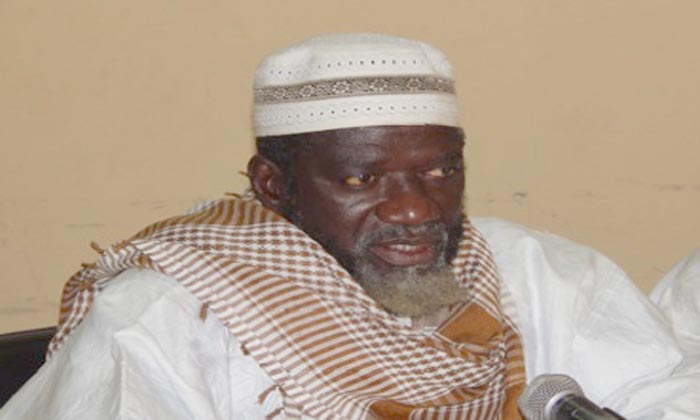

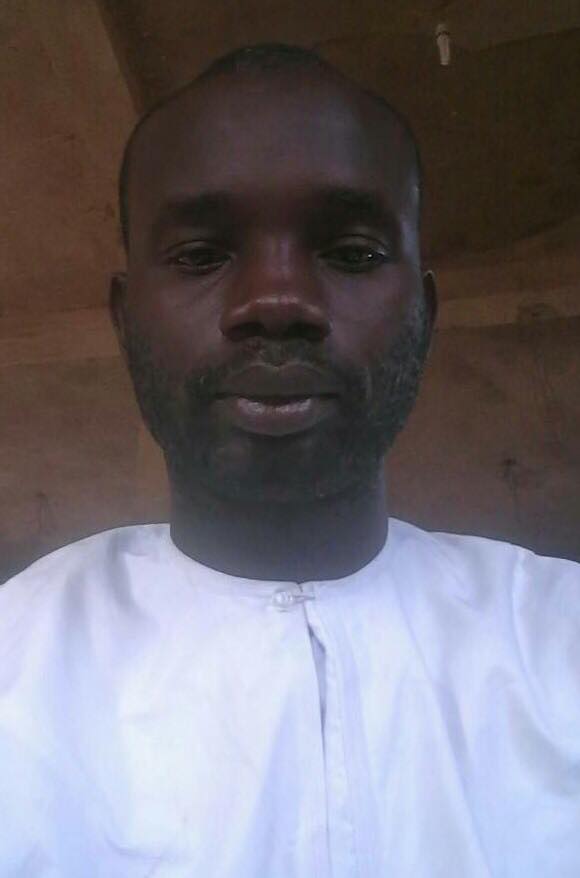
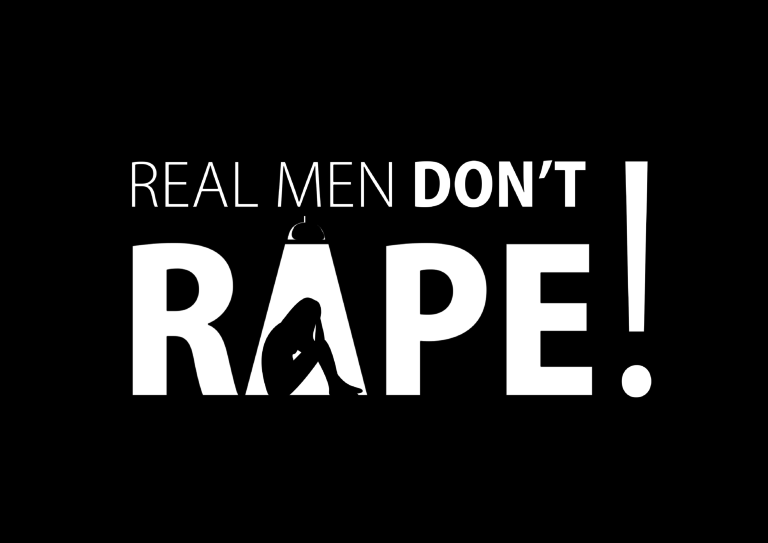
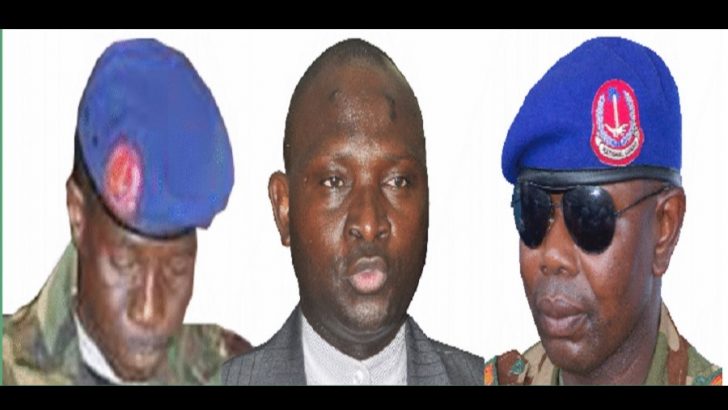
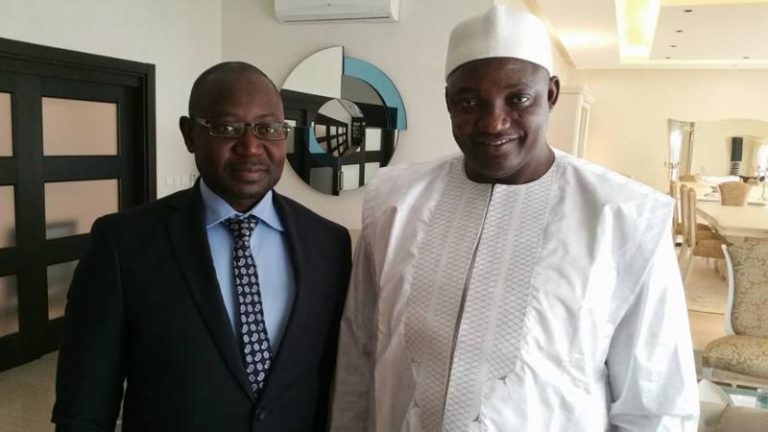
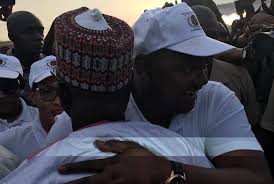
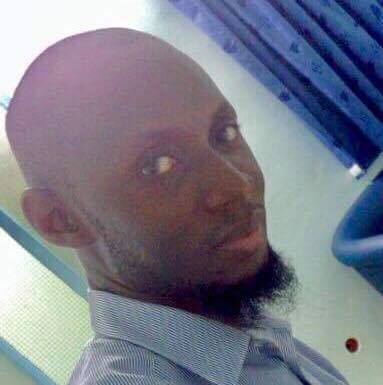
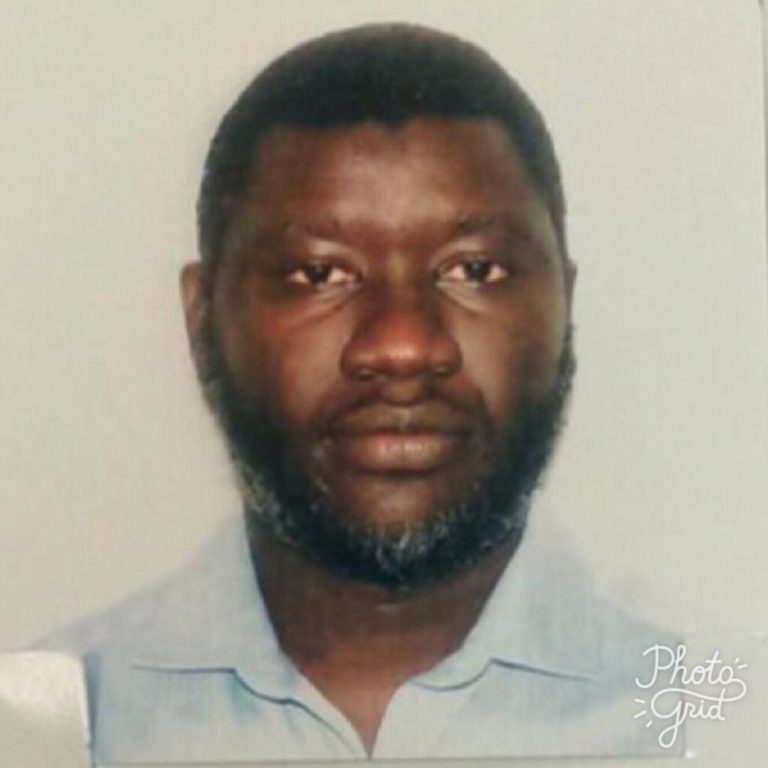

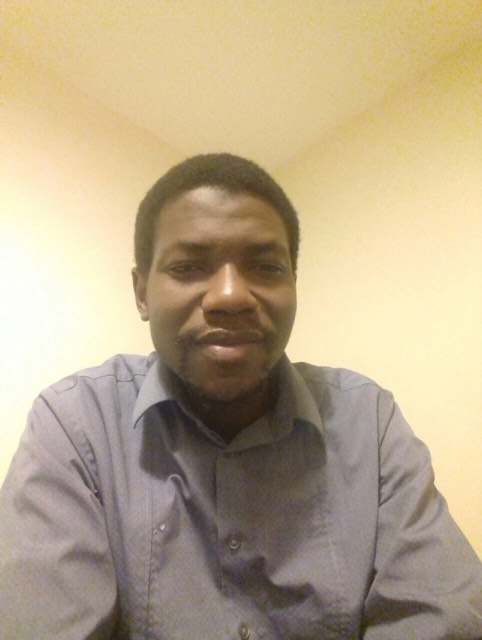
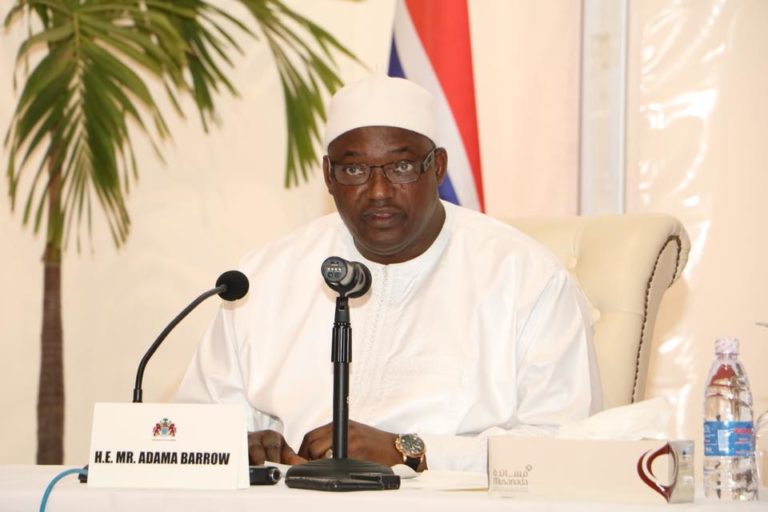
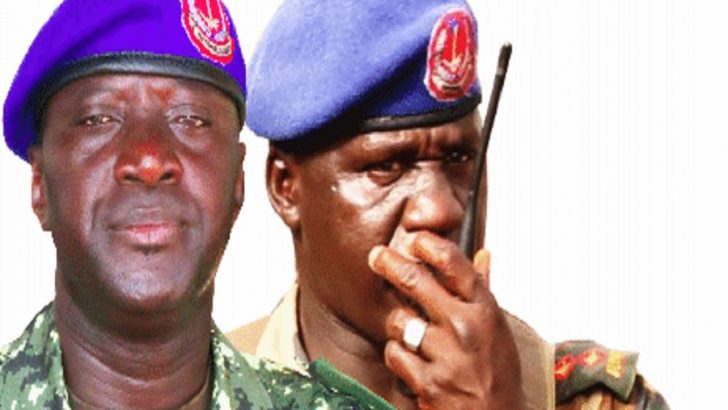
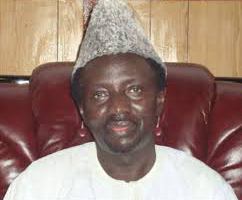
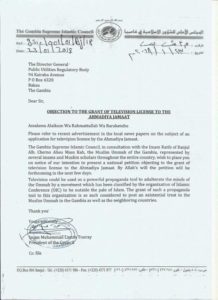
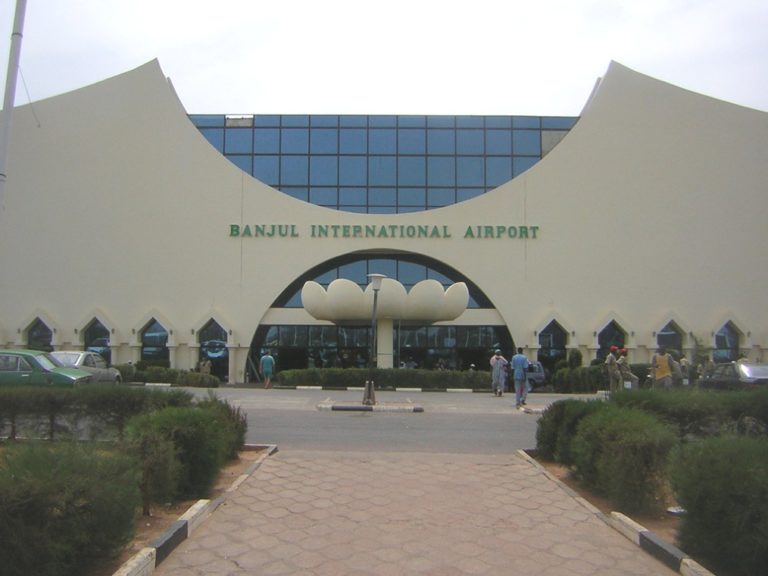
No to Political Patronage…
Reports have it that there are now at least two movements associated with you; or, affiliated with your name. These are the President Barrow Youth Movement and the Adama Barrow Foundation for Inclusive Development (ABFID). This is totally unacceptable, Mr President.
For long, African politicians have used the naivety of their youth to perpetuate themselves in office. They use these types of movements to hide their lack of focus on development and the raging fire of poverty and want which is ravaging their people. Whenever such movements are formed, you can be sure that it is not – cannot be – genuine and without ulterior motive. No amount of whitewashing can make these movements democratic.
Mr President, since you came to power – rather, since you came to office (power sounds misleading), there have been a series of failures on your part. You have presided over some very shady practices which can affect the democratization process. For instances, the fact that fifty-seven vehicles were given to members of the National Assembly and the public still does not know whence these vehicles is a case in point.
That incident and these youth movements (and perhaps others) all have a potential to severely derail our democracy. This is because the three arms of government are supposed to hold each other accountable. The National Assembly may not be able to exercise its oversight functions if members see the president, head of the executive, as a benevolent father who is willing to do anything to get them comfortable vehicles to move about. Thus that move was wrong.
The movements on the other hand will disturb the level playing field and the equilibrium in the area of politics, business and others. They are a perfect example of political patronage. The interesting thing is that when this was brought to your attention by a journalist, you brushed it aside as if it were of no consequence.
You said and I quote, “They came to seek my support, I promised to empower them.” (Fatunetwork). This implies that you agree with the idea. What is the difference between such a movement and the Green Boys and Green Girls under the former government? It is the same. They are groups of people seeking wealth and fame by associating themselves with the president and/or his name.
The ongoing Janneh Commission you set up to look into the financial dealings of the former president and his close associates has revealed clearly that when people or companies have a relationship with the president, they can – and often do – take advantage of said relationship to have an edge over others in the country. If truly someone is interested in national development, they need not set up a movement of that sort. If they do, let them name it after something (or someone) else. Why name it after our president? The truth is that, there are almost always ulterior motives. Why weren’t there any Barrow Youth Movements two or three years ago? The answer is simple; you were an ordinary businessman then. If someone had named a movement after you then, or when you leave office, I won’t bat an eyelash over it.
Now though, thousands of Gambians and I have given you our votes. We have given you our coffers, our destiny, our future and that of our children. So we cannot – will not – remain quiet while people use your name to gain political, financial and other favors at our detriment. Disband these. Now!
Have a Good Day Mr President…
Tha Scribbler Bah
A Concerned Citizen